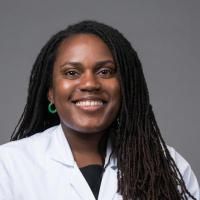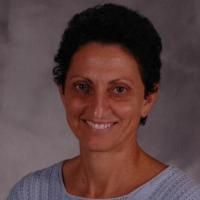The Sickle Cell Disease Functional Assessment (SCD-FA) tool: a feasibility pilot study.
Date
2022-03
Journal Title
Journal ISSN
Volume Title
Repository Usage Stats
views
downloads
Citation Stats
Abstract
Background
The life expectancy for individuals with sickle cell disease (SCD) has greatly increased over the last 50 years. Adults with SCD experience multiple complications such as cardiopulmonary disease, strokes, and avascular necrosis that lead to limitations that geriatric populations often experience. There are no dedicated instruments to measure functional decline and functional age to determine risk of future adverse outcomes in older adults with SCD. The objective of this study was to assess the feasibility of performing the Sickle Cell Disease Functional Assessment (SCD-FA).Methods
We enrolled 40 adults with SCD (20 younger adults aged 18-49 years as a comparison group and 20 older adults aged 50 years and older) in a single-center prospective cohort study. Participants were recruited from a comprehensive sickle cell clinic in an academic center in the southeastern United States. We included measures validated in an oncology geriatric assessment enriched with additional physical performance measures: usual gait speed, seated grip strength, Timed Up and Go, six-minute walk test, and 30-second chair stand. We also included an additional cognitive measure, which was the Montreal Cognitive Assessment, and additional patient-reported measures at the intersection of sickle cell disease and geriatrics. The primary outcome was the proportion completing the assessment. Secondary outcomes were the proportion consenting, duration of the assessment, acceptability, and adverse events.Results
Eighty percent (44/55) of individuals approached consented, 91% (40/44) completed the SCD-FA in its entirety, and the median duration was 89 min (IQR 80-98). There were no identified adverse events. On the acceptability survey, 95% (38/40) reported the length as appropriate, 2.5% (1/40) reported a question as upsetting, and 5% (2/40) reported portions as difficult. Exploratory analyses of physical function showed 63% (25/40) had a slow usual gait speed (< 1.2 m/s).Conclusion
The SCD-FA is feasible, acceptable, and safe and physical performance tests identified functional impairments in adults with SCD. These findings will inform the next phase of the study where we will assess the validity of the SCD-FA to predict patient-important outcomes in a larger sample of adults with SCD.Type
Department
Description
Provenance
Citation
Permalink
Published Version (Please cite this version)
Publication Info
Oyedeji, Charity I, Katherine Hall, Alison Luciano, Miriam C Morey and John J Strouse (2022). The Sickle Cell Disease Functional Assessment (SCD-FA) tool: a feasibility pilot study. Pilot and feasibility studies, 8(1). p. 53. 10.1186/s40814-022-01005-3 Retrieved from https://hdl.handle.net/10161/27486.
This is constructed from limited available data and may be imprecise. To cite this article, please review & use the official citation provided by the journal.
Collections
Scholars@Duke

Charity Oyedeji

Katherine Shepherd Hall
My research is focused on developing evidence-based physical activity interventions for older adults with an eye to preserving functional independence and quality of life. I am particularly interested in developing exercise programs to promote physical and psychological well-being among older veterans with posttraumatic stress disorder (PTSD).

Miriam C. Morey
The general focus of Dr. Morey's work is exercise and aging. All of her research examines how physical activity, exercise training, or physical fitness influence the physical functioning and/or pyschosocial quality of life of older adults. She directs a supervised hospital-based program for older adults, which is used to examine longitudinally the effects of exercise training on the musculoskeletal, articular, and cardiorespiratory systems. Furthermore, she has a number of studies that examine how system-wide impairments serve as preclinical indicators of disability and overall decline in the quality of life of older adults. Ongoing studies examine the role of exercise training in attenuation or reversal of functional decline and examination of the effectivenes of different methods of physical activity counseling for home-based exercise.
Dr. Morey's research evolves directly from three sources: (1) primary analyses of clinical trials regarding the impact of exercise on a specific outcome, (2) longitudinal analyses of participants in ongoing clinical exercise programs, and (3) secondary analyses of clinical trials which involve exercise or physical activity.
Although physical activity and exercise are the interventions of interest in all of these studies, the outcomes of interest vary considerably. Within the broad domain of aging, Dr. Morey has examined the impact of exercise on physical performance, well-being, sleep quality, disability, and functional limitations. More recently, Dr. Morey has several studies focusing on the effect of tailored telephone physical activity counseling to improve function in elders. Specific studies are targeted to newly diagnosed cancer survivors, long-term cancer survivors, and frail elders in geriatric and primary care settings.
Dr. Morey's expertise is in the area of exercise physiology and aging. She has specific knowledge in age-related changes in cardiorespiratory functioning, the effects of habitual exercise (longitudinal) on performance, and exercise programming for older adults.
Key Words: Exercise, maximal oxygen uptake, cardiorespiratory fitness, aging, disability,
functional limitations, longitudinal

John J. Strouse
My research has focused on the epidemiology, risk factors, and prevention of the pulmonary and central nervous system complications of sickle cell disease and includes retrospective and prospective cohort studies and clinical trials. I received my Ph.D. in clinical investigation from the Johns Hopkins Bloomberg School of Public Health for a series of studies to identify predictors of cognitive function in children with sickle cell disease. This work has expanded to the evaluation of the interaction between environment and disease in both children and adults and the functional evaluation of adults with sickle cell disease. My other research interests include the application of large clinical, research, and administrative databases to the study of rare hematological diseases and interventions to improve quality of and access to care for sickle cell disease. I serve on the American Society of Hematology Sickle Cell Taskforce and Sickle Cell Pain Guideline Panel and am co-chair of the American Society of Hematology Healthcare Professional Education and Training Work Group.
Unless otherwise indicated, scholarly articles published by Duke faculty members are made available here with a CC-BY-NC (Creative Commons Attribution Non-Commercial) license, as enabled by the Duke Open Access Policy. If you wish to use the materials in ways not already permitted under CC-BY-NC, please consult the copyright owner. Other materials are made available here through the author’s grant of a non-exclusive license to make their work openly accessible.
